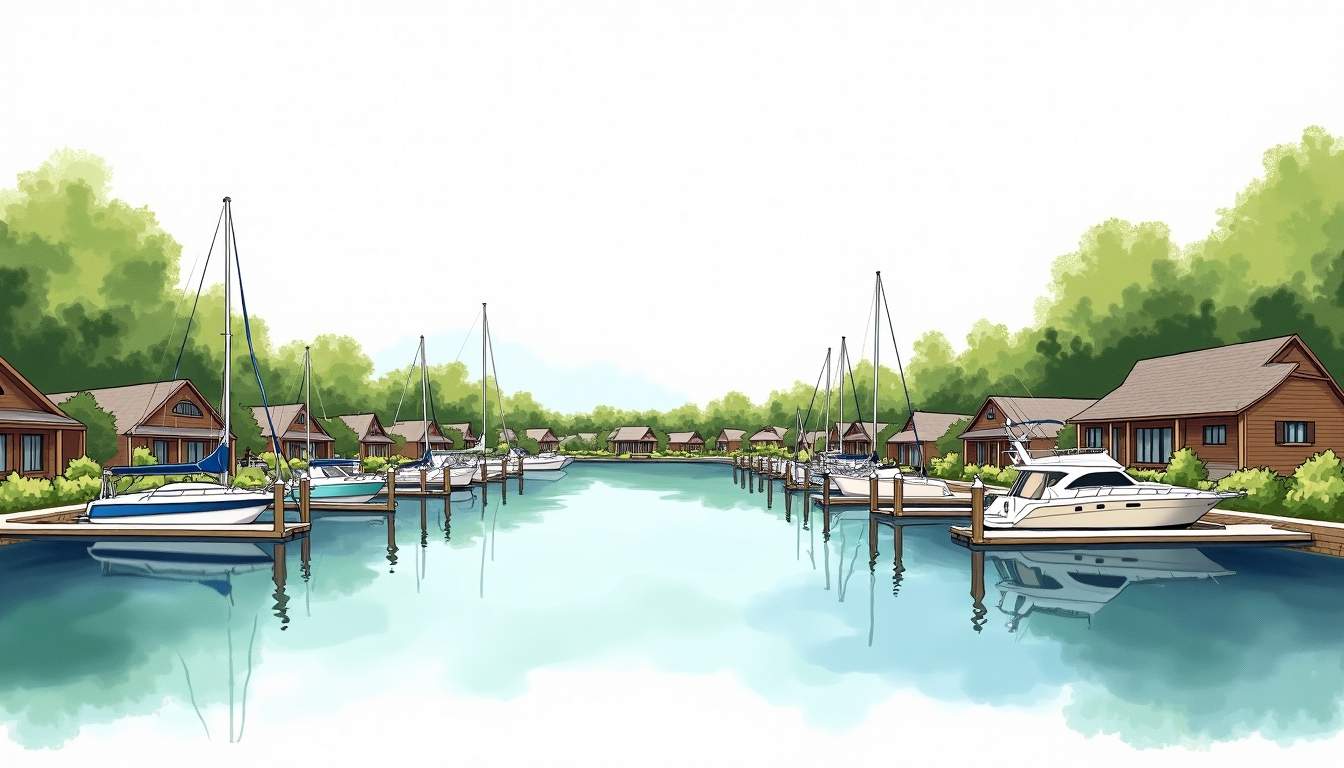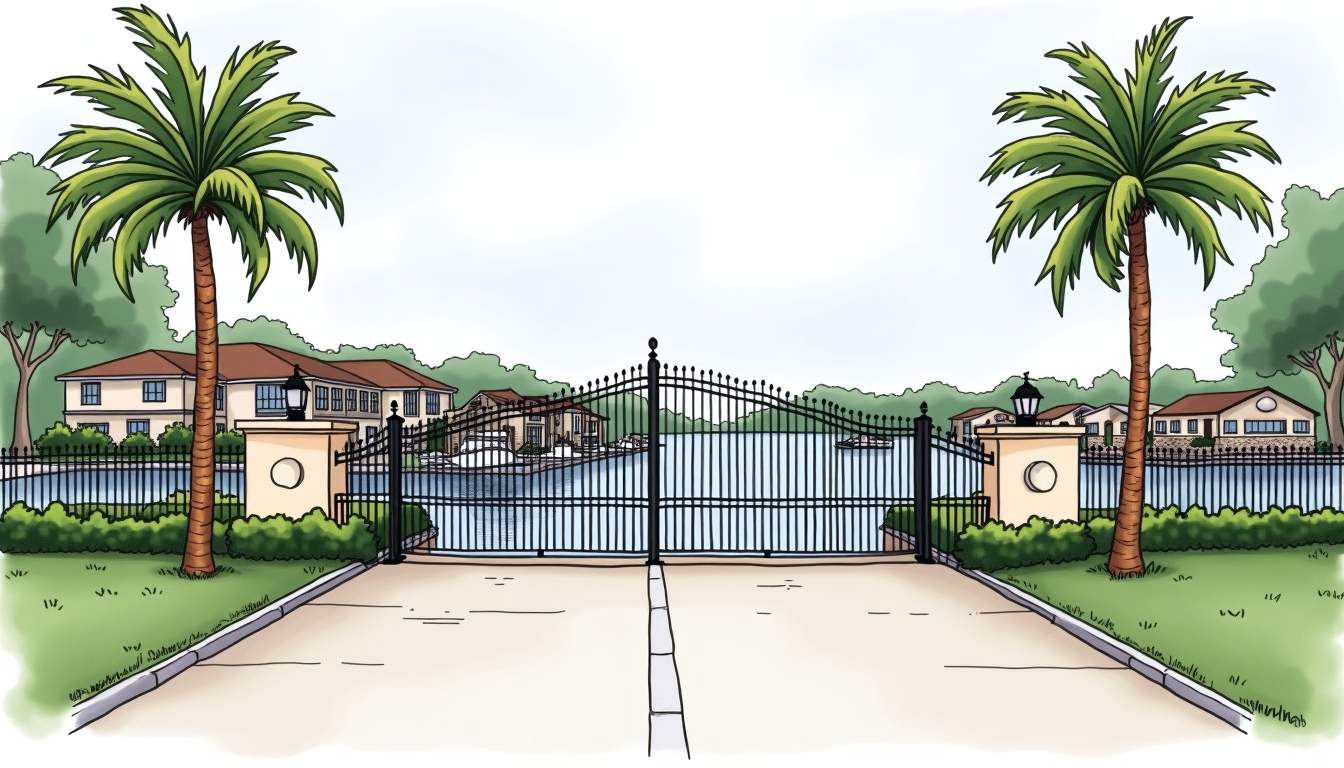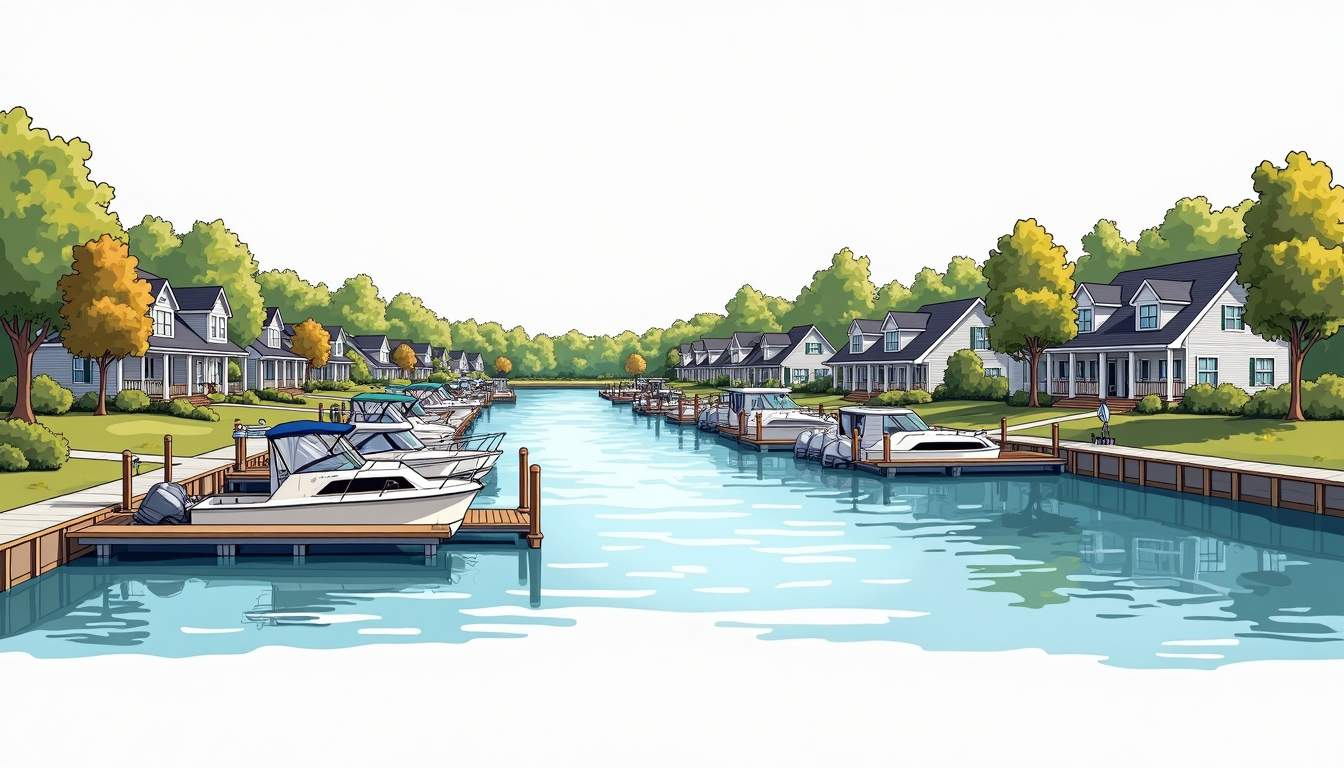
Buying a seasonal home in a gated marina community is a lifestyle decision as much as it is a financial one. These properties blend waterfront access, private amenities, and community living, creating opportunities for weekend retreats, snowbird escapes, or investment rentals. This guide walks through the practical considerations, the unique pros and cons, and the questions every prospective buyer should ask before signing an offer.
Seasonal homes are properties intended for part-time use rather than year-round occupancy. Regulations and terminology vary by location: some communities use “seasonal” to mean a certain number of days per year a home can be occupied, while others allow owners to live there for several months and rent the remainder. It’s essential to learn the exact definition used by the community and any local ordinances that affect occupancy.
In a marina community, seasonal living often aligns with boating seasons, weather conditions, and tourist patterns. For example, owners in northern climates may use properties primarily during warmer months, while those in subtropical regions may be winter residents escaping colder climates. Understanding seasonal timing informs planning for maintenance, rental potential, and personal use.
Additionally, the designation of a home as seasonal can impact property taxes, insurance rates, and financing options. Seasonal homes may benefit from different tax assessments compared to primary residences, potentially resulting in lower property taxes but also affecting eligibility for certain homeowner exemptions. Likewise, insurance providers often adjust rates based on occupancy patterns, factoring in risks like vacancy periods or weather-related damage when the home is unoccupied.
Another important consideration for seasonal homes is community infrastructure and services. Communities that cater to seasonal residents might experience fluctuating demand for utilities, waste management, and emergency services throughout the year. This can influence the quality and availability of these services depending on the season, so prospective owners should evaluate how these dynamics might affect their comfort and security during their stay.
Gated marina communities offer several attractions beyond typical residential neighborhoods. Security gates and on-site personnel provide a sense of privacy and safety, which appeals to many buyers. Marinas add convenience for boat owners: private slips, fueling stations, and storage can simplify water-based recreation and remove the need for separate boat club memberships.

Social amenities in these communities often include clubhouses, pools, fitness centers, walking paths, and organized events, creating a resort-like atmosphere. For those seeking low-maintenance living with built-in leisure options, a marina community can feel like an extended vacation every time the property is used.
Before moving forward, it helps to weigh lifestyle benefits against investment expectations. As a lifestyle purchase, seasonal homes provide personal enjoyment and convenience. As an investment, they can generate rental income but may also face seasonal demand fluctuations, HOA restrictions, and higher carrying costs. Clear priorities will guide research, financing choices, and negotiations.
Buying in a gated marina community carries specific financial elements. In addition to the purchase price, expect homeowners association (HOA) fees, marina slip fees, insurance premiums, and potentially special assessments for community projects. These recurring costs affect cash flow and should be included in any budget or rental pro forma.
Insurance for waterfront properties tends to be more expensive than for inland homes. Flood insurance, windstorm coverage, and higher liability exposure for docks and boats are common. Lenders may have stricter requirements for seasonal residences, and some mortgage products are not available for non-primary homes, so confirm loan options early in the process.
For buyers planning to rent the property, research local short-term rental demand and seasonal occupancy trends. Peak months near boating season or festivals can command premium rates, but shoulder months may see considerably lower demand. Factor in cleaning fees, management commissions, and vacancy rates to produce realistic income projections.
HOAs in gated marina communities play a central role in daily life and long-term property values. Review the covenants, conditions, and restrictions (CC&Rs) carefully. Some communities limit rental frequency or require minimum rental periods, impose rules on dock usage, and control exterior modifications. Understanding these rules avoids surprises and helps ensure the desired use of the property is permitted.
Pay attention to governance structure and financial health. HOA budgets, reserve funds, and history of assessments reveal how well the community plans for maintenance and emergencies. Ask for meeting minutes, recent budgets, and reserve studies. Communities with transparent, proactive boards typically manage shared assets more effectively and protect property values better over time.
Waterfront properties are subject to environmental regulations related to wetlands, shoreline erosion, and marine habitats. Permitting for docks, seawalls, or pier extensions can be complex and time-consuming. Consult local planning departments or environmental agencies to determine what is allowed and what approvals are required for any planned changes.
The quality of the marina directly affects the enjoyment and usability of a seasonal home. Assess the marina’s capacity, the condition of slips and pilings, access to open water, and protection from wind and waves. Confirm slip assignments and whether slip ownership is tied to the property or rented separately. Some communities require long waiting lists for slips, which may reduce convenience.
Look for practical details: availability of fueling, pump-out stations, fueling safety procedures, and whether electrical and water hookups at slips are included or billed separately. Verify maintenance schedules for the marina and ask about plans for upgrades, dredging, or repairs that could impact use and assessment costs.
Check the community’s emergency preparedness: flood mitigation measures, hurricane shutter procedures, evacuation plans, and access for emergency vehicles. Proximity to medical facilities, marine patrol, and search and rescue services can influence risk and insurance costs. A marina community that plans and trains for emergencies offers greater peace of mind for part-time residents.
Seasonal ownership requires careful planning for off-season care. Decide who will maintain the property when it is unoccupied: a property manager, neighbor, or self-employed service. Tasks include securing the home, maintaining HVAC and plumbing systems to avoid freeze damage in cold climates, pest control, and lawn and dock upkeep.

Consider smart-home solutions for remote monitoring, such as water leak sensors, smart thermostats, and security cameras. These technologies reduce the risk of surprises and allow quicker responses to issues. Confirm HOA rules regarding external equipment and visibility if privacy is a concern.
Seasonal homeowners often need storage for vehicles, trailers, and watercraft. Some gated communities offer on-site storage, but space can be limited or expensive. Verify restrictions on parking, trailer storage, and commercial vehicles. Also, examine access points for loading and unloading gear—handy docks, ramps, and staging areas simplify the seasonal transition.
Marina communities offer a range of unit types—condominiums, townhomes, single-family homes, and duplexes. Condos may offer lower maintenance and built-in security but come with stricter HOA rules and less control over exterior features. Single-family homes provide privacy and customization but entail higher maintenance responsibilities. Match the unit type to lifestyle needs and expected usage patterns.
Floor plan matters: look for storage space for boating gear, mudrooms for wet clothes, and easy-clean surfaces. Visitors and renters appreciate flexible sleeping arrangements and multiple bathrooms. A garage or covered parking space is valuable for vehicle protection and storage of outdoor equipment.
Water views and direct access are major draws, but orientation affects sun exposure, wind, and noise from the marina or nearby traffic. Units facing the marina may experience noise during peak season from boat engines and community events. Balance the desire for a waterfront view with privacy and tranquility preferences.
Engaging a real estate agent experienced with marina communities and seasonal properties is highly beneficial. These agents understand local regulations, typical HOA practices, and seasonal market dynamics. A knowledgeable agent can identify hidden costs, negotiate favorable terms, and recommend reliable inspectors and property managers.
Also consider consulting a marine surveyor for the marina facilities and a coastal engineer if planning structural changes near the shoreline. Legal advice from a real estate attorney familiar with waterfront and HOA law helps navigate contract language and any special assessments or easement issues tied to marina operations.
Before closing, confirm the following: HOA financial documents and minutes, insurance requirements and quotes, precise slip assignment and terms, disclosed deferred maintenance, and all municipal permits for existing docks and structures. Verify utility billing practices, tax implications for seasonal rentals, and any transfer fees associated with the slip or community membership.

A final walk-through should include the dock and water-access points as well as the interior. Take note of dock condition, pilings, electrical hookup safety, and any visible signs of water damage or mold. Ensure keys, access codes, and gate remotes are transferred and that there is a clear plan for post-closing maintenance and onboarding with the HOA.
Seasonal homes in gated marina communities offer a compelling mix of leisure, convenience, and community. The appeal of stepping out a back door onto a private dock and heading onto the water is powerful, but the lifestyle comes with unique responsibilities and costs. Careful due diligence—understanding HOA rules, marina arrangements, insurance and financing, and seasonal logistics—turns an aspirational purchase into a sustainable, enjoyable asset.
Approach the purchase with clear priorities, realistic financial planning, and a team of professionals who know waterfront properties. With the right preparation, a seasonal home in a gated marina community can provide years of relaxation, recreation, and rewarding returns if managed thoughtfully.
Ready to embrace the seasonal home lifestyle within a premier gated marina community? Tennessee National offers luxury waterfront living paired with exceptional amenities, including a Greg Norman Signature Golf Course, private marina, and over 20 member-exclusive benefits. Whether you prefer a move-in ready home or a custom build, our community is designed to provide the perfect balance of leisure and comfort. Schedule a Private Tour today and start making memories in a resort-style setting that feels like home all year round.